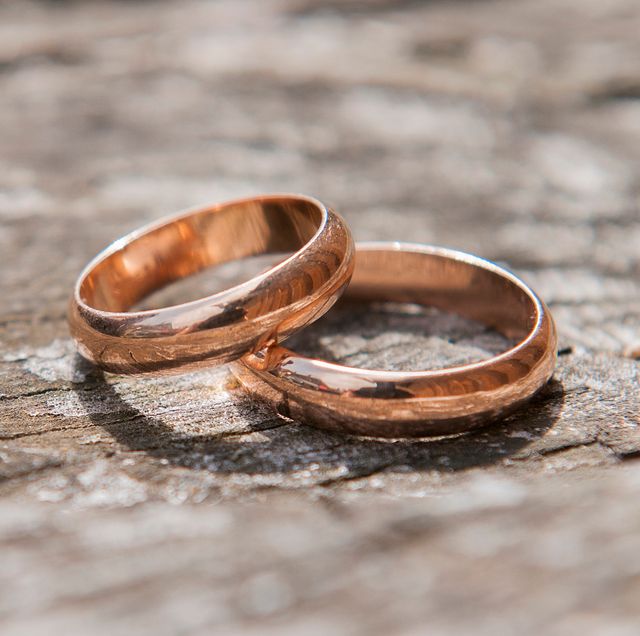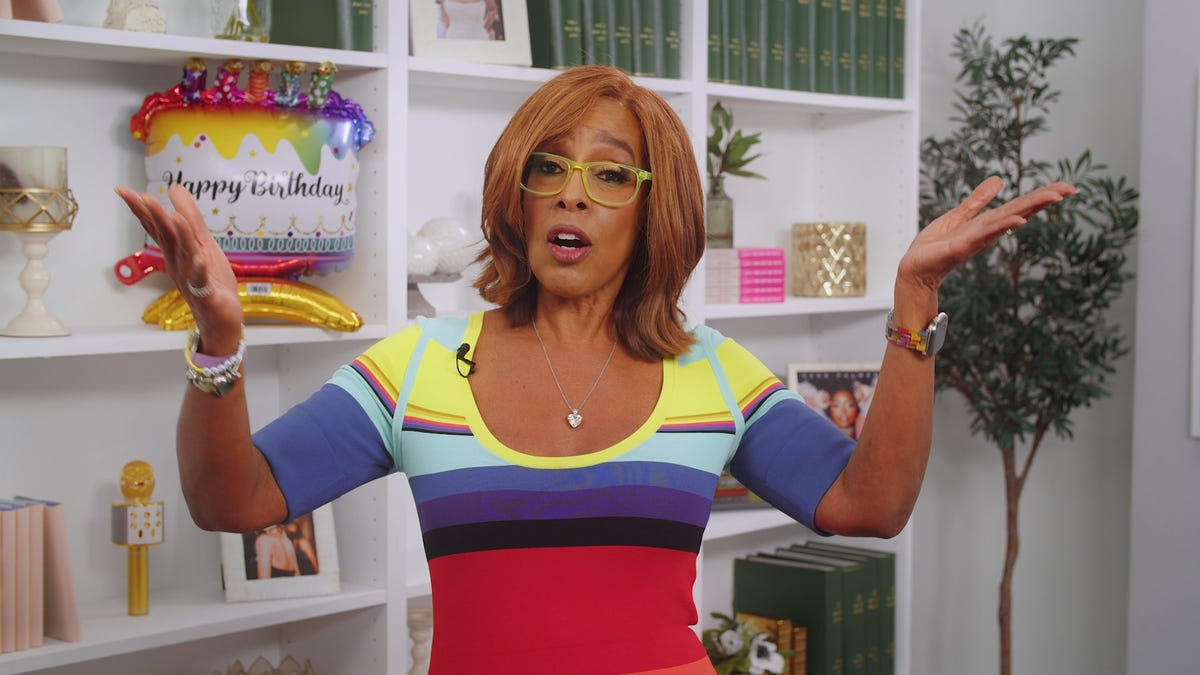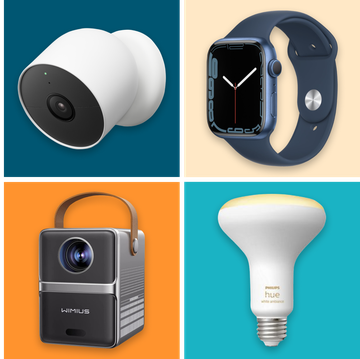The concept of open marriage—or any open relationship, whether wedding rings are involved or not—runs counter to everything we've been taught about romantic commitment. And that's exactly why it fascinates so many of us. In July of 2020, Jada Pinkett Smith's revelation that she'd had "an entanglement" with R&B singer August Alsina fanned the flames of long-held rumors that Jada and Will Smith are, as they say, open. While the Smiths have never confirmed those rumors, and Will Smith denies Alsina's claim that he gave the singer his blessing, the way the couple publicly addressed Pinkett Smith and Alsina's involvement provided fresh material for the eternal "can open marriages really work?" debate.
The dearth of open marriage statistics make that question tough to answer; there's no way to know how many end in divorce. "We have so little research on alternative relationships and sex practices that fall outside the mainstream, because no one will fund those research studies," says Tristan Taormino, sex educator and author of Opening Up: A Guide to Creating and Sustaining Open Relationships. "I think if you ensure anonymity and privacy, people will talk to you about their relationships, it's just that no one will spend the money."
In a 2019 Psychology Today post, Eli Scheff, Ph.D., one of the few researchers who studies and writes about adults who practice consensual non-monogamy (or CNM) in the U.S., pointed to two research teams who separately found that 4 to 5 percent of the population was currently part of a CNM relationship. That number may be even higher. "Because CNM is highly stigmatized, lots of people who do it might be hesitant to admit it, even on an anonymous survey," Scheff wrote. Still, 5 percent of the total U.S. population is a lot of people.
Here's what to know about open marriages, and how to approach your partner if you're interested in giving it a try, according to experts who've practiced consensual non-monogamy themselves. Both agree that ultimately, an open marriage is only as healthy as the relationship at its center.
What is an open marriage, exactly?
In her book A Happy Life in an Open Relationship, Canada-based therapist Susan Wenzel, who's in an open marriage herself, defines it as such: "An open relationship is an arrangement wherein a couple decides to include experiences with other people often for sexual pleasure. Open relationships do not encourage emotional attachment with external partners. Some people in open relationships prefer onetime sexual experiences or several dates, but ensure they do not become romantically involved with these additional sexual partners. A couple in an open relationship always prioritizes their primary relationship."
Wenzel tells OprahMag.com that the only real difference between an open marriage and an open relationship is that the former "has taken traditional vows." Taormino agrees, particularly given the increasing number of Americans who opt not to marry. "It's semantics," she says.
Open marriage is one type of relationship under the larger umbrella of consensual non-monogamy. It differs from polyamory, another style of non-monogamy, in that there's one committed couple at the center and they're not typically seeking a romantic love connection from their external sexual relationships. But Taormino says "open marriage" is really defined by each individual married couple.
"Someone could be in an open marriage and say, 'You're allowed to flirt and make out with people when we go to bars, and that's it," she explains. "And others might say, 'You're allowed to have a boyfriend or girlfriend in addition to me, your spouse.'" It's less about following the "right" rules that define it, and more about which specific rules and boundaries you and your spouse agree on.
An open marriage can be healthy, but it won't likely save a relationship that's in trouble.
"Certainly, an open relationship cannot save a marriage," says Taormino. "In fact, if there are existing conflicts, power struggles, and other issues in a relationship when you open up a monogamous relationship, those will become magnified times ten."
Wenzel believes that working to achieve excellent communication is required before you both embark on this new adventure, and you keep returning to that goal throughout. "Non-monogamy really allows couples to have deep and difficult conversations," she says.
When asking for an open marriage, take your time
First, do your own research (if you're reading this article right now, you've already begun!). Books like Taormino and Wenzel's are great places to start; Dossie Easton and Janet Hardy's The Ethical Slut is another widely respected resource. Taormino also recommends Liz Powell's Building Open Relationships, and for a rare examination of race in non-monogamous communities, Kevin A. Patterson's Love's Not Color Blind. And, of course, talking to people who are in open marriages is a great way to hear about what it's been like for them and their spouse.
"I think it's a good idea to do some homework, because what comes up for a lot of people in those first conversations are myths and misinformation," Taormino says."Like, 'wait, you want to attend orgies? Or you want me to watch?!'"
When you do bring it up, Wenzel says you must do it when your marriage is in a good place, and you're having a nice time together. "When you're fighting, it's really hard for your partner to separate your level of dissatisfaction or anger from, 'no, this is just me wanting to expand our horizons.'" These are big ideas, so prepare to be okay with a possibly negative reaction, and don't pressure them into changing their mind.
"Create that space for them to struggle with it, and be supportive," Wenzel says. "Don't rush them."
If you think your spouse may feel too blindsided by an outright "would you like to try an open marriage" question up front, you may want to introduce the idea indirectly. "I think saying something like, 'I read this article about open relationships, what do you think?' leaves the question kind of open-ended, which may feel less threatening to the person on the receiving end," Taormino says. Texting them the article gives them even more space to sit with it until they're ready for the next conversation.
Talk out your fears, and theirs.
The thought of your spouse being with someone else is really hard for most people at first, Wenzel says, so keep that in mind when you discuss it. "Start talking about those fears," she advises. "How would your life change?"
Wenzel also recommends seeking help from a professional such as a marriage counselor, if it feels right, to facilitate those hard conversations. "Sometimes, the fears you have are because of underlying factors that are making them less open to it," she advises. "Professional help may feel more secure and grounded to be able to take that journey."
Know why you want an open marriage.
If it's solely because you feel a loss of desire—on your part, theirs, or both—after years with your spouse, you may want to try other ways of getting the spark back first. It's also worth rethinking what "the spark" means when you've been with someone for years. "If you read all the research, neuroscience, and sex therapy advice, it'll tell you that when we're courting, we have these incredibly heightened emotions fueled by endorphins and other happy chemicals being released in our brain," says Taormino. "It's not sustainable." The hormone rush that newness, compared to the chemistry between two longtime partners, she adds, "is apples and oranges."
Thinking of it as an exciting adventure you and your spouse are embarking on together—and framing it as such to your partner—is a great starting place. "Emphasize that this is a mutually-beneficial collaboration," Taormino says. "It's both supposed to be consensual for everyone, and everyone's got a stake in it." Point out that it's an opportunity for both of you to explore sexual fantasies, have fun with partners who may share bedroom-related interests that the two of you don't share, and gain experiences you can bring home to share with your spouse (unless not discussing dalliances in detail is one of your rules, of course).
Establish the rules.
Again, the rules of conduct and disclosure are unique to each couple. The important thing is that you both agree and trust each other to abide by them.
"All the people that I've talked to and known in open relationships, they always have agreements about safer sex and sexual health," Taormino says. No one wants to find themselves in a sexually-transmitted infection cluster, or carry the guilt that comes with passing an STI onto your partner. "Having someone's sexual history, knowing what kinds of safer sex practices they have, and agreeing on safer sex practices is really important," she adds.
"I like the 'don't neglect our relationship' rule," Wenzel says, sharing that her style of open marriage involves standing dates with her husband. She'd also suggest nailing down time-related information, especially when you're both first heading out on dates. "How long are you going? Do I wait for you tonight? Do I know that you're coming back? You want to go to sleep and not wonder if your partner was supposed to be here, or if they're in a ditch somewhere." In Wenzel's relationship, they ensure safety by sharing information about their "special friend," such as where they work or their home address.
Face jealousy (and crushes) head on.
It's common for anyone in a long-term relationship to have feelings for another person at some point. "Monogamy will not protect you from your spouse falling in love with someone else. That's a myth," Taormino points out. Still, it's a bit trickier when those feelings blossom through actual physical intimacy. "We're human, and we don't walk gracefully into love—we fall into it, or it sneaks up from behind. It may happen."
Taormino believes that the central concept of monogamy sets people up to feel devalued when their partner has a crush or "cheats" on them, when it doesn't have to be so. "Someone developing stronger, more intense feelings for one of their partners is not a comment on you," she says. "These two things can coexist. You can be madly in love with a partner and then fall in love with another person."
Whether you're detecting a romance and you feel jealous, or you're the one harboring a giant crush, you and your spouse should discuss it as honestly and as soon as possible. "A hard conversation has to happen," Taormino says. What happens next entirely depends on the couple—you might agree that the spouse who is crushing on someone else should cut off contact with that person in hopes of snuffing those feelings out. Or, you may agree to renegotiate and see where that connection leads, effectively dipping your toe into polyamory.
"It's all an ongoing conversation," Wenzel says, and you'd follow the same trajectory as with those first open marriage discussions. Broach it, give them lots of space to grapple with it, talk out your respective feelings, and know a hard "no" when you hear one.
Know that you'll both make mistakes.
Taormino urges couples to start out slooowly. "If you've only had jelly beans for quite a while, and then someone opens the door to the candy shop and says, 'have anything you want,' you might gorge yourself on every kind of candy," she says. "And then you're gonna run into some trouble." Consider attending an open relationship event together before you, say, start booking encounters on a dating app. "Keep it simple," she adds. "Leave enough time to process how it went, and what people's feelings are about it."
Re-confirm those boundaries and rules you've both promised to adhere to often—because, as with any type of relationship, communication is key. "We've got to know that we're a team here, and no one is trying to intentionally hurt anyone else," she adds.
Exciting sexual encounters aside, you may be pleasantly surprised by what you discover about your partner and yourself. "You're discovering your sexuality in a different way," Wenzel says. "But I'm thankful for opening our relationship for many reasons. It allows me to take this path of personal growth, to be in a place where it feels like you're not so focused on insecurities, so that you really can enjoy life."
For more stories like this, sign up for our newsletter.

Samantha Vincenty is the former senior staff writer at Oprah Daily.













